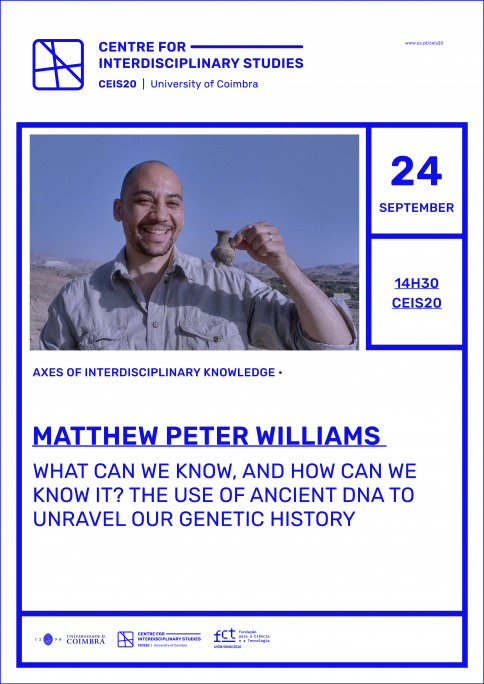Matthew Peter Williams is going to present the lecture What can we know, and how can we know it? The use of ancient DNA to unravel our genetic history under the Axes of Interdisciplinary Knowledge. The session will take place in the CEIS20 Seminar Room on September 24 at 2:30 PM.
The field of paleogenomics has revolutionized our understanding of human evolutionary history, with recent efforts concentrating on unraveling our more immediate past. However, this shift has raised important questions about the efficacy of existing methods in addressing historical and archaeological hypotheses pertaining to putative past migrations. This presentation will explore how historical conditions such as increased demographic complexity and decreased genetic differentiation impact the performance of commonly-used ancient DNA admixture methods. In addition, the presentation will provide a preview of on-going ancient DNA research focusing on the genetic history of Mesopotamia through an analysis of a Bronze and Iron Age community residing on the periphery of Mesopotamia and the Zagros foothills.
Biography
Matthew Williams is an archaeogeneticist, specializing in the genetic history of ancient Near Eastern populations whose research bridges the fields of ancient history, archaeology, molecular biology, and population genetics. As postdoctoral scholar in the Huber lab at Pennsylvania State University, Dr. Williams is currently exploring innovative ways to leverage ancient DNA to push the boundaries of what we can learn about our collective history of demography and natural selection.


